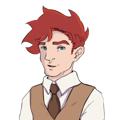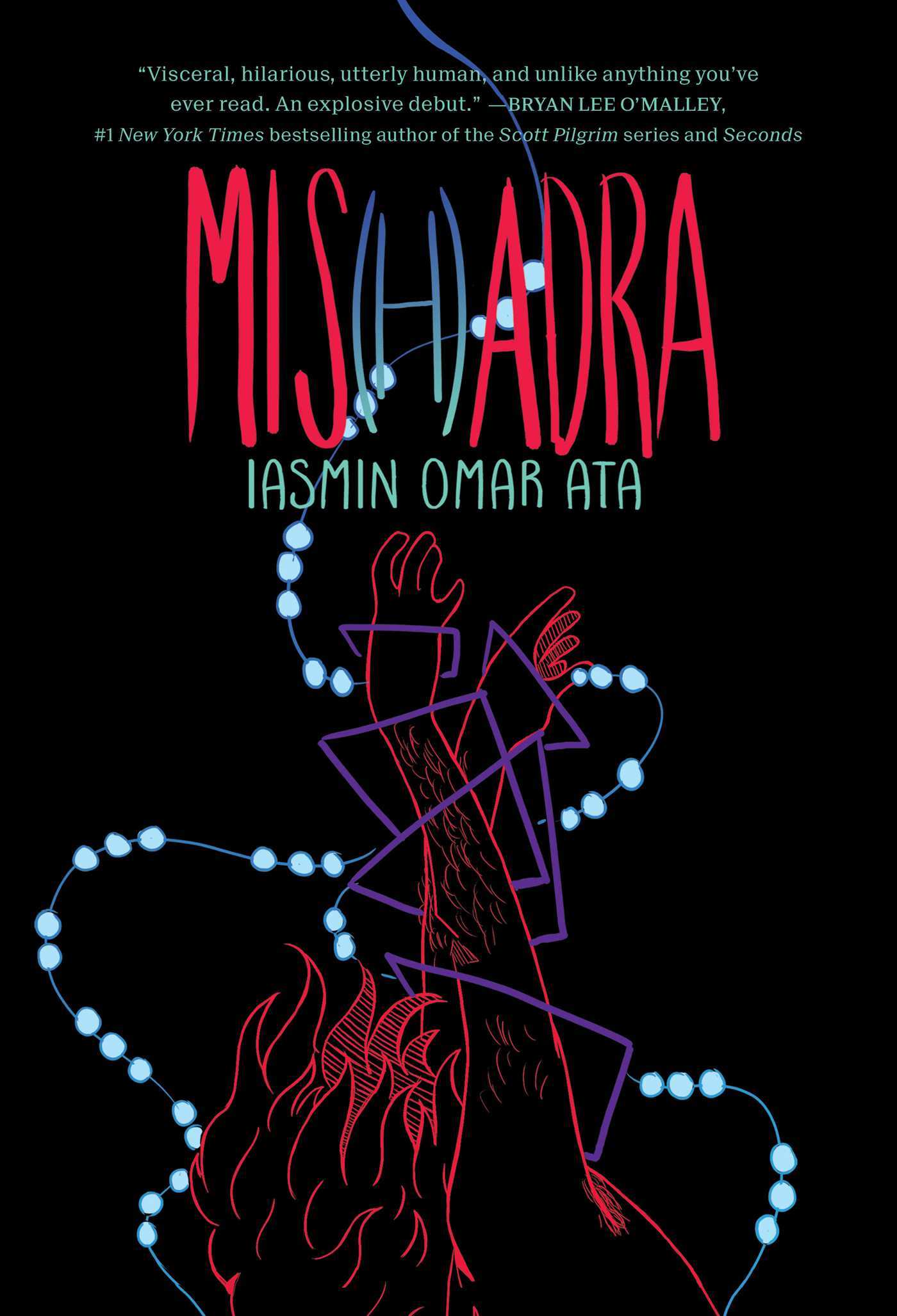Literally Graphic reviewed Mis(h)adra by Iasmin Omar Ata
2023 Review
Definitely one of my favourite reads of 2023, I initially picked this graphic novel up as part of my Palestine/Palestinian TBR.
Content notes for body horror, eyeballs, struggling with medical side-effects, drinking, rashes, unhelpful family, and low self-esteem.
A fictional story based off of their own medical experience, Iasmin self describes as "an intersectional comics artist, illustrator, and game designer. Iasmin focuses on creating art centered around the themes of coping with illness, understanding identity, and dismantling oppressive structures." I've already read their other recent title, Nayra and the Djinn (so look forward to that review soonish) and apparently they also contributed to the very enjoyable Be Gay, Do Comics anthology from The Nib. Would highly recommend you check out that flip through review. Scrolling through their twitter account it seems like they are pretty keen on Sonic the Hedgehog as well.
What kinds of keywords came to mind? knives, dots, anime hair, contrast, multi-dimensional, and vibrant.
Jumping straight into the art, it was beautiful, it was creative, it was poppy, and expressive; it communicated the story in ways that felt novel and I just really really loved it. There's lovely use of halftone, sketching on coloured pages, and expressive lines.
Looking at the character designs, I also really loved the way Ata drew everyone and their fashion sense was pretty on point - but the shifting colors did leave me second guessing who people were a couple of times.
Writing wise, I also found this graphic novel really different and interesting. Reading their interview with Comics Journal, Ata described the creation of this comic as sort of like art therapy, and how writing about Isaac helped them come to terms with their own diagnosis.
I'm more then a little biased because while I do not have epilepsy, my own university experience involved a four year low grade migraine and undiagnosed adhd. So I was never able to keep up with my meds and felt like I had gerbils nesting in my brain almost all the time. The dagger imagery and constant internal battles felt pretty visceral and real to me even all these years later.
I really appreciated the amount of ill intent and stigma that we see others putting on Isaac. Not because I think that's cool obviously, but because it's so real. Isaac's classmates think he's being deliberately lazy or constantly high; his doctors think he is selling his prescription and his family (while caring) clearly doesn't understand his life at all.
Getting a tad bit spoilery, when we open Isaac has very low self-esteem and self sabotages. He struggles to participate in community and he assumes that everyone sees him as a burden. As the story continues on Ata goes into a lot of emotional detail. As we reach the end however, Isaac makes a crucial connection with a friend, Jo, who shares their similar medical journey and encourages Isaac to value themselves more. With the addition of this critical sense of disabled community Isaac is able to conclude on a more hopeful note - and we get a glimpse of what it would mean for him to feel more normal in his own skin.
Looking at the intersections and identities I try to highlight in each of my reviews:
Disability is obviously pretty central and something we've already discussed pretty extensively.
Because of the unrealistic coloration of the graphic novel, racial diversity is not super obvious. There does appear to be some diversity in character design, our main character is racialized, and we do have hijabi representation.
Gender and sexuality felt similarly not particularly discussed, but also not boxed up into cis hetero boxes either. Each character's gender expression felt pretty relaxed and honestly not pairing everyone up right away sometimes feels a bit queer in and of itself.
Class felt the most off screen.
Wrapping things up, obviously I already hinted at how much I enjoyed this book. Five stars. Graphic medicine continues to be something I'm always hungry to read more of.

